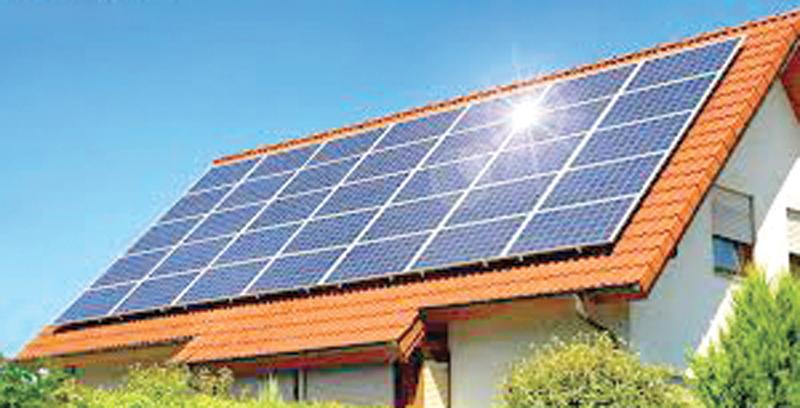
The government is initiating the procurement process for phase one of the Pooneryn Renewable Energy Park (PREP) which is expected to commence by the end of October, Lead Transaction Advisor, National Agency for Public-Private Partnership, Ministry of Finance, Ruchit Kandage said at a renewable energy conference in Colombo last week.
He said the initial procurement would be for solar power while the procurement for wind power, would come in the second phase. There is a vast amount of work and approvals to be completed.
“The process needs to work like a Swiss clock to achieve the milestone. However, I am cautiously optimistic,” Kandage said adding that once operational the PREP would add a significant amount of renewable energy at a reasonably lower rates so that the overall energy cost should come down.
He said it is too early to predict the shift in prices that we would receive via competitive bidding. All the work by the country will help Sri Lanka to follow a competitive, transparent bidding process and discover prices. It would also allow the transaction to be closed financially.
“We need to tap the full potential of renewable energy sources in the country as we are target to generate 100 percent electricity via renewable energy sources by 2050,” Kandage said adding that Sri Lanka is among the 43 countries of the Climate Vulnerable Forum that agreed to make electricity generation 100 percent renewable by 2050.
Sri Lanka signed the declaration at the COP in Marrakech, Morocco. According to the UNDP, this is highly ambitious for a country that expects a steep increase in per capita electricity consumption for years to come.
The event marked the visit of a delegation of German solar experts and business representatives to Sri Lanka. The event and business delegation are part of the program ‘Energy Solutions made in Germany’ of the Federal Ministry of Economic Affairs and Energy. Opportunities for Sri Lankan–German cooperation, crucial technical topics such as system integration, storage technologies and financing instruments were also discussed.
Chief Delegate of German Industry and Commerce Andreas Hergenroether highlighted the success story of Renewables in Germany. “In the first half of 2018, the share of renewable energies in the energy mix was 38% and almost 10% in solar energy. During the past years, specialised German solar companies have gained international reputation as market leaders. Sri Lanka with its public commitment to renewables could benefit from the know-how of German solution providers,” he said.
Representatives of the German Section of the International Solar Energy Society (ISES) and the German Association for energy storage technologies gave an overview on the latest innovations on system integration and storage technologies.
Matthias Ross, CEO of Berlin-based manufacturer AUTARSYS, containerised energy storage systems (ESS) for renewable energy applications said: Our technology makes renewable systems more energy efficient and cost-effective, with the capacity to increase the share of renewables up to 100%”.
German engineering company VSAT specialised in the installation of micro solar systems and engaged in a project with the Sri Lankan police, Team Blau GmbH - specialised in energy management consulting and NRG4.you offering system integration and set up and maintenance of solar power plants were presenting their portfolios. All German companies are looking for Sri Lankan partners to join efforts to develop solar projects in the country.
As a member of the Vulnerable Climate Forum, Sri Lanka committed to generate the entire power demand of the country by renewable energies until 2050. Several projects in solar energy were announced lately by government officials.
Electricity consumption in Sri Lanka increases by more than five percent yearly and power cuts are now being experienced. Solar energy could be a short-term alternative to meet the current demand and equally on a long-term basis a sustainable alternative to increase the percentage in energy self-sufficiency.
With the energy demand exceeding 11 billion KW/H, the country meets its demand from several energy sources including indigenous biomass and imported fossil fuel which amounts to around 78 percent of the total energy production while the rest is supplied by large and small hydropower, solar and wind energy plants.
According to energy experts, the country cannot progress in its drive to achieve a higher contribution from renewable energy due to the absence of renewable energy grid integration and technology for storage in the country.
“The confusion, lack of clarity and consistency in policy are major obstacles Sri Lanka must address to attract investments into the energy sector in the country. Investors are hesitant to invest in Sri Lanka due to the poor procurement process,” a renewable energy expert said.
